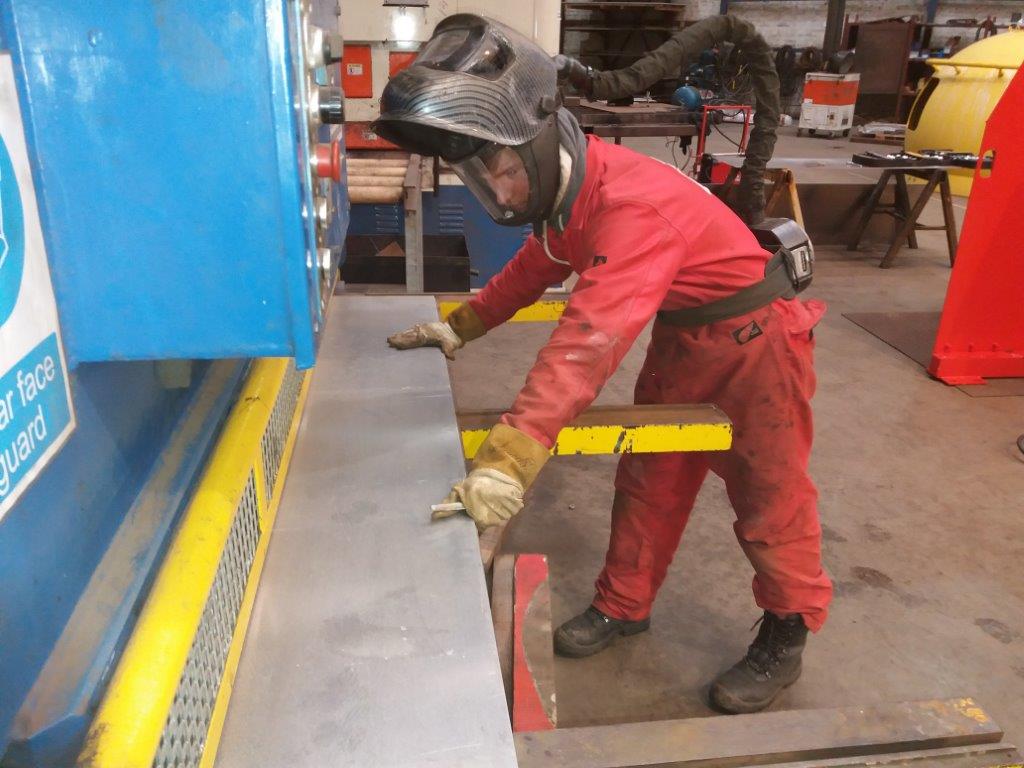Modern Apprenticeships offer those aged 16 and over, who are in paid employment, the opportunity to train and gain qualifications at craft, technician and management level. Briggs supports this approach to develop skilled and qualified individuals without the need for full-time study.
Modern Apprentices follow nationally recognised qualifications that have been developed by industry to provide skills that are important to the whole sector, and a training programme flexible enough to suit company specific requirements. This allows organisations to develop expertise and knowledge through work-based or college-based training and assessment.
Our Apprentice, Dylan Cooper, is following the Craft Modern Apprenticeship route featuring the five Core Skills; Foundation Phase Performing Engineering Operations Level 2, Academic Enhancement NC Fabrication and Welding Engineering, Sector Specific SVQ Fabrication and Welding Level 3 and Platework Pathway.
The SVQ Level 3 is delivered in the workplace and involves him being trained and assessed to National Occupational Standards for:
Complying with statutory regulations and organisational safety requirements
Using and interpreting engineering data and documentation
Working efficiently and effectively in engineering
Developing and marking out templates for metalwork
Cutting plate and sections using shearing machines
Cutting and shaping materials using portable thermal cutting equipment
Forming platework using power rolling machines
Producing and finishing holes using drilling machines
Joining fabricated components using mechanical fasteners
Producing fillet welded joints using a manual welding process
This is a four year apprenticeship programme. The first year is spent at College where the curriculum is split between theoretical and practical work. During years two to four, the Apprentice is in full time employment with the workforce. They follow the framework set out within the SQV Level 3 requirements. During the course of each year, their work is assessed by the College Assessor. All aspects of the work carried out is supported by a written project and the Assessor determines what progress is being made, where the strengths and weaknesses lie and what further support may be required.
Dylan is the second person to have followed this MA, the first being Ben Anthony who qualified in 2015 and has since gone on to become a full time Coded Welder at Briggs’ operations base in Burntisland.
